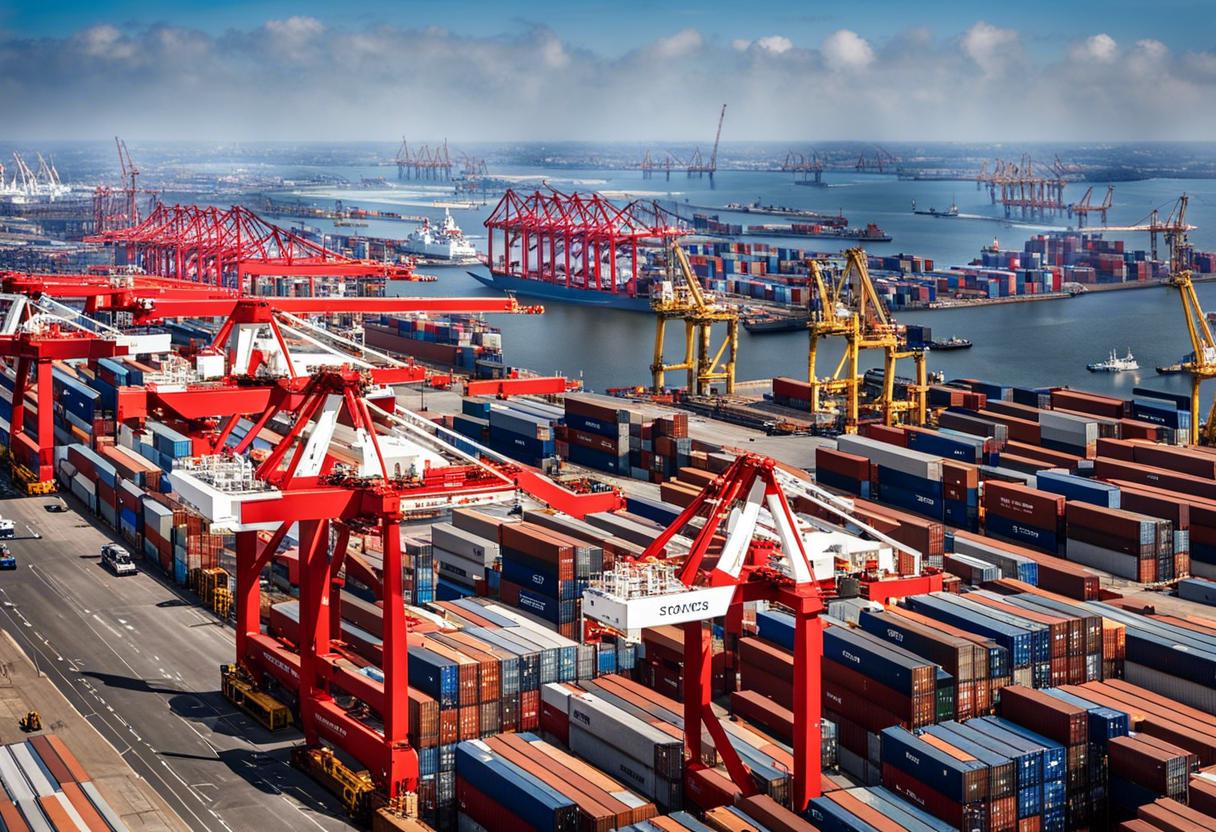In response to potential “considerable disruption”, the British government has informed port authorities that it won’t activate essential health and safety inspections for European Union imports as post-Brexit border procedures take effect this month. This move, as per a briefing received by the Financial Times from the Department for Environment, Food and Rural Affairs (Defra), is a strategy to sidestep long lorry queues at ports.
It was unveiled that the new border regulations, if executed as envisaged, might lead to significant hold-ups. The government has pledged to progressively introduce checks since proclaiming new border controls for plant and food commodities last year, an action trade associations caution could cripple smaller enterprises and elevate food prices.
Despite this, just over two weeks before on-site inspections are due to start, last week’s presentation demonstrated that these new border protocols won’t be entirely operational. To circumvent this, the government has revealed that it would initially set the inspection rate to “zero for all product categories”, effectively disabling substantial parts of the risk control system in what has been labelled a “gradual deployment method”.
Since 2021, execution of these new border checks has been deferred five times, allowing EU exporters of animal and plant goods to ship them to the UK unhindered. Within its briefing, Defra confessed to port health officials that there remain continual “issues” within its system for logging imports of food and animal products. This could unintentionally spark uncontrollable inspection levels, causing ports to exceed capacity.
It has been suggested that, in the event of all product codes being activated simultaneously on the first day, substantial disruption could ensue. The report did not clarify the duration of the border check suspension, but suggested a gradual enabling for respective product sectors.
Trade associations have iteratively urged for the introduction of the new border to be pushed back until October at the earliest. “The new border checks and costs add confusion and uncertainty which is detrimental for businesses,” stated William Bain, Head of trade policy at the British Chambers of Commerce. “It’s crucial that Defra provides clear communication regarding its strategies, any modifications need to be communicated immediately.”
Contrarily, Defra advised that its strategy should not be disclosed to businesses who will face a maximum charge of £145 per shipment for EU imports from the end of April.
An individual acquainted with the situation mentioned that an advisor from Defra advised against revealing information to the press, stating that the primary goal was to avoid undesirable media coverage. Defra confirmed that the principle customs system would maintain operation but solely for commodities posing the highest threat, like certain countries’ meat products, and the level of busyness at the port of entry is a determinant.
In a span of three weeks this year, it was indicated that Bristol had merely 17 risk alerts versus 12,573 for Dover in the same timeframe. Consequently, Bristol could potentially enable complete customs inspections, while inspections in Dover would be intentionally “restricted” to prevent holdups. The CEO of the Cold Chain Federation, which represents perishable goods traders, Phil Pluck conveyed his frustration. He expressed his perturbation related to the dismissal of warnings concerning the preparedness of important infrastructure, given that businesses would have to navigate what he referred to as a flawed system in under a fortnight.
Phil implored the government to delay comprehensive incorporation till October, and to initiate collaboration with the food logistics sector to create a system that is truly effective and reduces more chaos, interruption, and expenses. Defra affirmed their belief in their ability to manage the anticipated inspections. They noted that the highest biosecurity risk goods would take priority as they progress toward full check rates and excellent compliance levels. Defra also emphasised the adoption of a practical approach to the initiation of their new border inspections – an approach which minimises disruption, safeguards our biosecurity, and benefits all, especially traders. – Copyright The Financial Times Limited 2024.

